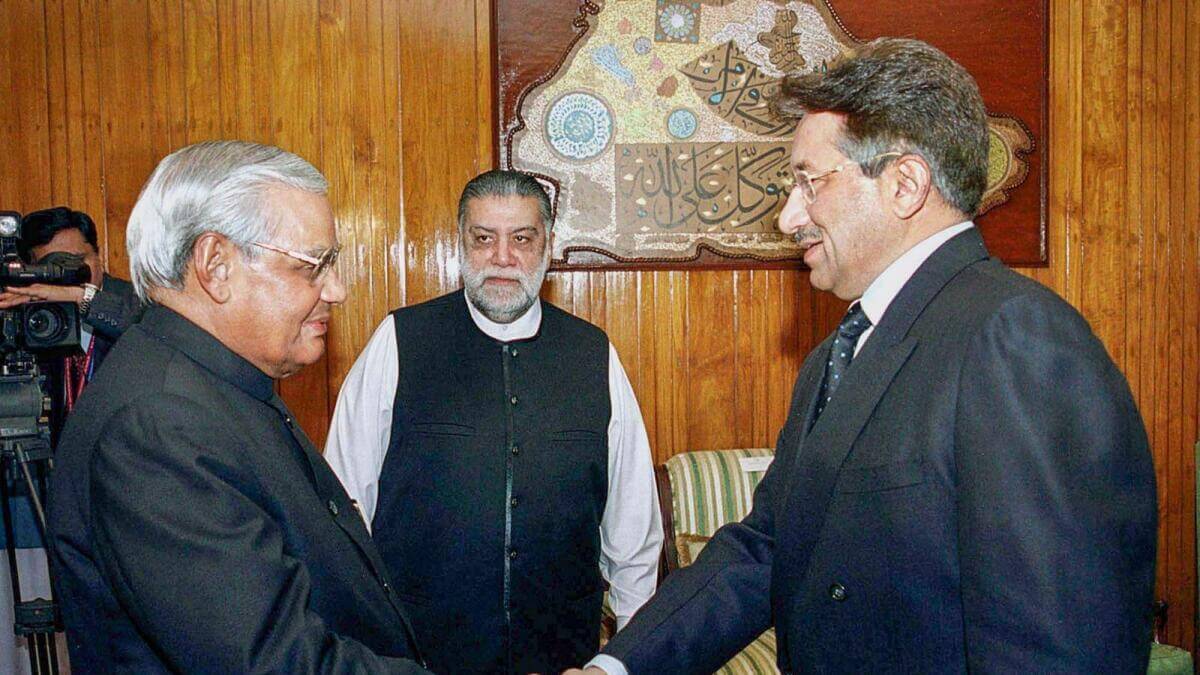Former Pakistani President and military dictator Pervez Musharraf died in Dubai on Sunday after suffering from a prolonged illness of amyloidosis, a rare disease that causes abnormal proteins in the body to interfere with normal functioning.
On the one hand, attracting criticisms and backlash, Indian National Congress MP Shashi Tharoor has expressed regrets regarding Musharraf’s death, and lauded him as a “real force of peace.”
On the other hand, several BJP leaders have highlighted Musharraf’s role in the rise of terrorism in India and violations of international law.
This polarisation highlights the exact nature of the “love-hate” relationship between Indians and Musharraf, who occasionally had a favourable stance on India before and during his dictatorship.
“Pervez Musharraf, Former Pakistani President, Dies of Rare Disease”: once an implacable foe of India, he became a real force for peace 2002-2007. I met him annually in those days at the @un &found him smart, engaging & clear in his strategic thinking. RIP https://t.co/1Pvqp8cvjE
— Shashi Tharoor (@ShashiTharoor) February 5, 2023
Kargil War and Other Security Threats to India
Musharraf has often been blamed for leading, causing, and architecting the Kargil War in 1999. As the army chief, he ordered and orchestrated intrusions by Pakistani forces across the Line of Control, where he set to occupy the high-altitude posts that India vacated due to harsh winters.
With this, he intended to pressurise India in the Siachen conflict and attract international concern regarding Kashmir, which the army believed would lead to a resolution in Pakistan’s favour.
An Indian “national” party’s leader first casts doubts on our soldiers’ act of bravery in Pulwama.
— Jyotiraditya M. Scindia (@JM_Scindia) February 6, 2023
Then another one eulogises Pervez Musharraf who was responsible for the Kargil war.
दुश्मनों के साथ ‘हाथ-से-हाथ जोड़ो’ अभियान!?
He wrote in his memoir that he and then-PM Nawaz Sharif “had both wanted to put Kashmir firmly on the world’s radar screen, politically as well as militarily. The Kargil initiative succeeded in doing so.”
His decisions are blamed for instigating the three-month-long war, which caused the death of 527 Indian soldiers. Nevertheless, India emerged victorious, resulting in very few gains and tremendous losses for Pakistan.
In addition, this brought relations with India to an all-time low, mainly as the conflict came just months after erstwhile Indian PM Atal Bihari Vajpayee’s February 1999 visit to Lahore, where he signed a peace agreement with his Pakistani counterpart Nawaz Sharif.
During Kargil War, Pakistan Army led by Gen Pervez Musharraf in their endeavour to distance themselves from the intrusions carried out by them stooped so low that he did not even accept the dead bodies of their own soldiers. Soldiers who had died fighting for their country ! 1/2 https://t.co/2PaWUOlX2Q
— Y K Joshi (@YkJoshi5) February 5, 2023
New Delhi had also highlighted evidence of Musharraf’s role in the 1999 Hijacking of an Indian Airlines plane. The hijackers took 150 hostages to negotiate the release of three anti-India militants.
Agra Summit
While criticised for his role in the devastation caused by the Kargil War, Musharraf has been lauded for extending an olive branch to India in 2001.
In his memoir, he says that the 2001 Gujarat earthquake was an “opportunity of a thaw” as he extended relief and support to India. This event “broke the ice” and led to Musharraf being invited to India for the SAARC Agra Summit in July.
During a 90-minute discussion with PM Vajpayee at the sidelines of the Agra Summit, both leaders discussed contentious issues like Kashmir, terrorism, nuclear risks, exchange of prisoners of war, and economic ties. While the details of the agreement were not released, the two leaders lauded the discussions as positive.
Question to BJP leaders frothing at the mouth: if Musharraf was anathema to all patriotic Indians, why did the BJP Government negotiate a ceasefire with him in 2003 & sign the joint Vajpayee-Musharraf statement of 2004? Was he not seen as a credible peace partner then?
— Shashi Tharoor (@ShashiTharoor) February 6, 2023
At the time, reports said that Musharraf proposed a “four-point solution” to New Delhi and Islamabad’s Kashmir dispute, which was the first such attempt to resolve the decades-long conflict. His recommendations included free movement across the Line of Control and self-governance without independence for Jammu and Kashmir. He suggested that the solution should involve cooperation between India, Pakistan, and political leaders in Kashmir.
Amid India’s resistance to Musharraf’s inaction against cross-border terrorism, including attacks during the Pakistani leaders’ visit to India, the talks failed and Vajpayee refused to include references to Kashmir in a joint statement.
In his memoir, Musharraf said that the leaders had been “humiliated” at the discussions, and Vajpayee had “failed to grasp the moment and lost his moment in history.”
Received many messages on this tweet today - most people agree and many don’t understand that Vajpayee and Sharif had made a serious effort towards peacemaking but Musharraf destroyed that chance for a peaceful subcontinent. This should never be forgotten. https://t.co/60HQn5Co9f
— HindolSengupta (@HindolSengupta) February 6, 2023
However, even his short visit to India sparked controversy, as New Delhi opposed his meeting with Kashmiri separatists.
Nevertheless, Musharraf’s role in beginning discussions with India on the Kashmir issue engendered a series of meetings in the peace process between 2004 to 2007, which resulted in a historic US-brokered ceasefire.

